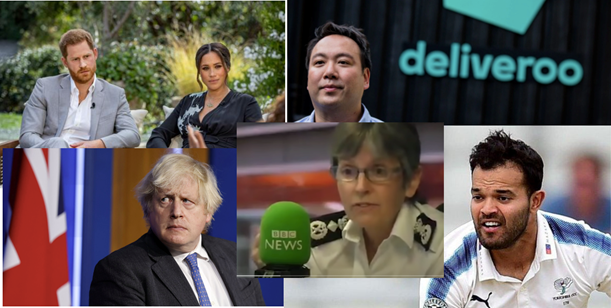Writes Dave Mason; journalist, author and owner of Mentor Media Training
It would be very easy simply to get drawn into government communications and the continuing crises which face No.10 Downing Street and Boris Johnson, in particular.
The situation is always distinctly different for politicians and their advisors, than it is for corporate or public bodies.
However, some clear and simple truths emerge from the government’s handling of the pandemic in 2020/2021, and they’re steeped in trust and the culture of leadership. The result is that many more questions need to be asked:
- How open to transparency in the organisation is a given leader/CEO?
- Is the culture laissez faire about following regulations and good governance?
- Do your leaders have the emotional intelligence to know when to emote/say ‘sorry’?
- Has behaviour, lack of action or a slow-burning issue resulted in an erosion of trust?

There are numerous crossover issues, and non-government organisations weren’t without reputational dilemmas in 2021, leading to communications crises, a few of which included:
- The Monarchy: House of Sussex versus House of Windsor
- Deliveroo pay scandal and flotation
- The Met Police and its response to issues of violence against women
- The cricket race row: the mishandling of the aftermath by leaders at Yorkshire CCC.
If you’re in communications or marketing and a little nervous about how matters of reputation might play out in 2022, let’s apply some simple DO’s and DON’T’S for crisis preparedness and planning, as we go into the new year:
DON’T
- Sweep risk issues under the corporate carpet - review your crisis plan at SMT level
- Think, ‘it’ll never happen to us’ – it happened to all of us in 2020
- Treat communication as an operational after-thought – make sure it sits at SMT
- Say ‘no comment’ when asked for a response
- Send a corporate-sounding two-page statement to a media outlet, (that’s ‘old-skool’!)
DO
- Audit your crisis communications plan together with its neighbouring BCP/CMT plan
- 50% of news is consumed via social: take a 2022 strategic approach to your comms mix
- Begin upskilling your comms/marketing team and SMT to create ‘owned’ video content
- Identify and create a ‘digital space’/virtual studio for delivering webinars/media at HQ
- Proactive v reactive: ensure two tiers of SMT are media trained for proactive and crisis
In short: we live in a volatile, unpredictable, complex and ambiguous world. Leaving crisis communications planning and scenario testing to the last minute is reputationally dangerous and not ideal in a post-pandemic world, (we’re still in it of course).
But it’s easy to see how training is not an operational priority day to day, until something happens. Then, effective organisational reaction and response is your number one priority. And it’s much more than about how to handle pushy journalists.
If you plan, train and test for worst-case scenarios, you are creating a more resilient organisation, and don’t forget, if you have new senior leaders, they’ll need some refresher training too. Get in touch with our office or with me directly to find out more; dave@mentortraining.org.uk

